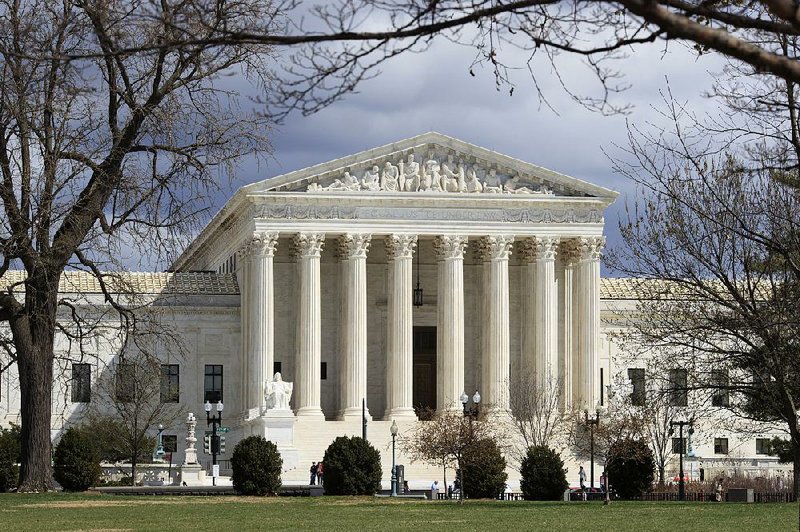WASHINGTON -- The Supreme Court tried to figure out Tuesday whether immigrants should get a second chance in court when bad legal advice leads to a guilty plea and certain deportation.
The justices seemed divided during an argument about what to do in cases in which the evidence against criminal defendants is strong and the chances of acquittal by a jury are remote.
The court is considering the case of Jae Lee, a South Korean immigrant who was facing drug charges.
Lee pleaded guilty after his lawyer mistakenly assured him a conviction would not lead to deportation.
[U.S. SUPREME COURT: More on Gorsuch, current justices, voting relationships]
The Trump administration is arguing the outcome at trial would have been the same. The administration has pledged to increase deportations, with a focus on immigrants who have been convicted of crimes.
John Bursch, Lee's lawyer, told the court that his client would have taken his chances at trial or had his lawyer seek a better plea deal that might allow him to remain in the United States.
Justice Elena Kagan, seeming to favor Lee, said she would make the same choice if she were in Lee's shoes. "Sign me up," Kagan said.
The issue in Lee's appeal is whether the lawyer's recommendation to take the deal offered by prosecutors was so bad that it amounts to a violation of Lee's constitutional right to a lawyer.
[U.S. immigration: Data visualization of selected immigration statistics, U.S. border map]
Both sides agree that the performance of the lawyer, Larry Fitzgerald, was deficient in representing Lee. The Supreme Court ruled in 2010 that immigrants have a constitutional right to be told by their lawyers whether pleading guilty to a crime could lead to their deportation.
But Lee almost must show that the bad lawyering mattered to the outcome of the criminal case.
The federal appeals court in Cincinnati ruled that the evidence against Lee was overwhelming and that he would have been convicted had he rejected the plea offer and taken his chances at trial. Other appeals courts around the country have sided with immigrants in similar circumstances. The Supreme Court is expected to set a national standard.
Justice Anthony Kennedy said a ruling for Lee could put judges in a tough position. "You're asking us to assess the mindset of a defendant when he makes the plea," Kennedy said.
Alabama is leading 19 other states in backing the administration's argument that the appeals court ruling should be upheld.
The Justice Department under former President Barack Obama had previously urged the Supreme Court to turn down the appeal and leave the lower court ruling in place. The new administration announced in February that any immigrant in the country illegally who is charged with or convicted of any offense, or even suspected of a crime, will now be an enforcement priority for deportation. Some 11 million immigrants are living illegally in the U.S.
Immigrant rights groups and the bar association are among those siding with Lee.
A decision in Lee v. U.S., 16-327, is expected by late June.
A Section on 03/29/2017
